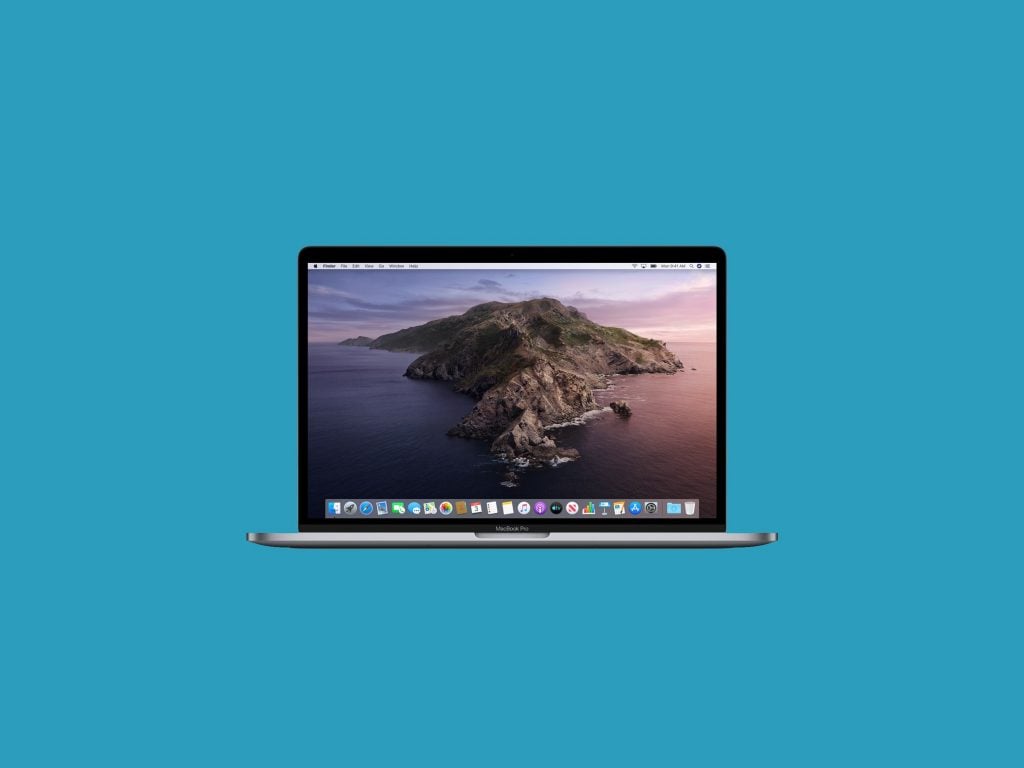Will Apple Rename Its Operating Systems? A Look At The Possibilities

Table of Contents
The Current Apple Operating System Landscape
Apple currently boasts a family of operating systems, each tailored to a specific device. macOS, the operating system for Mac computers, offers a robust experience for professionals and creative users alike. Recent iterations like macOS Ventura have focused on features like Stage Manager and enhanced multitasking. iOS, powering iPhones and iPod touches, remains the world's most popular mobile operating system, known for its intuitive user interface and vast app ecosystem. iOS 17 promises even more improvements to the user experience. iPadOS, a customized version for iPads, introduces features optimized for the larger screen size. watchOS powers the Apple Watch, providing fitness tracking, communication, and app functionality on the wrist. Finally, tvOS runs on Apple TVs, offering a seamless streaming and entertainment experience.
- Strengths of Current Naming: Individual names clearly associate the OS with the device (e.g., iOS for iPhone).
- Weaknesses of Current Naming: The diverse naming scheme lacks overall brand unity and can be confusing for new users. It doesn't immediately suggest a shared Apple ecosystem.
Reasons Why Apple Might Rename its Operating Systems
Several compelling arguments support the possibility of an Apple operating system name change.
Brand Consistency and Simplification
A unified naming scheme would significantly enhance Apple's brand identity. Consider Google's Android, which consistently uses the same core name across its diverse product range.
- Potential Benefits: A simplified name, like "AppleOS" or a similar creative alternative, would improve marketing campaigns, make the ecosystem easier to understand for new users, and foster a stronger sense of brand cohesion.
- Examples: Microsoft's Windows operating system provides a good example of simple, widely understood branding.
Reflecting Evolving Product Lines
Apple's product line is constantly evolving. A name change could better reflect the functionalities and target audiences of its operating systems. With the potential expansion into AR/VR headsets or other new product categories, a flexible and adaptable naming convention becomes even more relevant.
- Potential New Names: The current system could be streamlined to reflect core functions, such as "Apple Connect" for devices requiring network connectivity or "Apple Vision" for augmented reality applications.
- Future-Proofing: A more adaptable name could ensure long-term relevance as Apple's technological advancements continue.
Marketing and Modernization
A fresh name offers an opportunity for Apple to revitalize its brand image and appeal to a new generation of users. This could be particularly effective in boosting adoption of new devices and services.
- Successful Rebranding: Numerous companies have successfully leveraged rebranding to increase market share and revitalize their image.
- Marketing Campaigns: A new OS name provides a central theme for captivating marketing campaigns, driving engagement and promoting new features.
Reasons Why Apple Might Not Rename its Operating Systems
Despite the potential benefits, there are strong arguments against an Apple OS renaming.
Brand Recognition and Familiarity
The current names enjoy widespread recognition and familiarity among users. Changing them risks disrupting established user habits and creating confusion.
- Negative Impact: Users accustomed to iOS or macOS may find a sudden name change jarring and unsettling.
- Rebranding Costs: Updating marketing materials, software interfaces, and documentation associated with a rebranding exercise would be incredibly expensive and time-consuming.
Technical Challenges and Compatibility
Renaming operating systems presents considerable technical hurdles. It would require extensive software updates, app store adjustments, and potential compatibility issues with existing apps and hardware.
- App Store Updates: Thousands of apps would need to be updated to reflect the new OS names, potentially causing delays and frustrations for developers and users.
- Developer Documentation: Existing developer documentation and resources would need to be comprehensively revised, adding to the overall complexity and cost.
Conclusion
The question of whether Apple will rename its operating systems remains open to debate. While a unified naming scheme offers benefits in terms of brand consistency, marketing, and reflecting product evolution, the established brand recognition of the current names and the technical challenges associated with a rebranding exercise present significant obstacles. While a complete overhaul seems unlikely in the immediate future, incremental changes, such as a subtle rebranding or the introduction of a unifying overarching name, are certainly plausible. What are your thoughts? Will Apple rename its operating systems? Share your predictions and opinions on the potential for "Apple rename operating systems" in the comments below!

Featured Posts
-
 Le Depute Jacobelli Se Felicite De La Decision De Justice Concernant Le Rn En 2026
May 30, 2025
Le Depute Jacobelli Se Felicite De La Decision De Justice Concernant Le Rn En 2026
May 30, 2025 -
 Trump Administrations 3 Billion Loan Denial To Sunnova Energy Details And Impact
May 30, 2025
Trump Administrations 3 Billion Loan Denial To Sunnova Energy Details And Impact
May 30, 2025 -
 Is Bruno Fernandes Leaving Manchester United For Al Hilal
May 30, 2025
Is Bruno Fernandes Leaving Manchester United For Al Hilal
May 30, 2025 -
 Alcaraz Vs Musetti Predicting The 2025 Monte Carlo Masters Final
May 30, 2025
Alcaraz Vs Musetti Predicting The 2025 Monte Carlo Masters Final
May 30, 2025 -
 Histoire De La Deutsche Bank Succes Echecs Et Restructurations
May 30, 2025
Histoire De La Deutsche Bank Succes Echecs Et Restructurations
May 30, 2025
Latest Posts
-
 Fox19 Meteorologist Finds New Part Time Role In Cleveland
May 31, 2025
Fox19 Meteorologist Finds New Part Time Role In Cleveland
May 31, 2025 -
 Guardians Opening Day Examining The Historical Weather Patterns
May 31, 2025
Guardians Opening Day Examining The Historical Weather Patterns
May 31, 2025 -
 Who Will The Browns Draft At No 2 Mel Kiper Jr S Projection
May 31, 2025
Who Will The Browns Draft At No 2 Mel Kiper Jr S Projection
May 31, 2025 -
 Northeast Ohio Facing Strong Thunderstorm Threat Latest Forecast Updates
May 31, 2025
Northeast Ohio Facing Strong Thunderstorm Threat Latest Forecast Updates
May 31, 2025 -
 Is Guardians Opening Day Always So Cold A Weather History Analysis
May 31, 2025
Is Guardians Opening Day Always So Cold A Weather History Analysis
May 31, 2025
